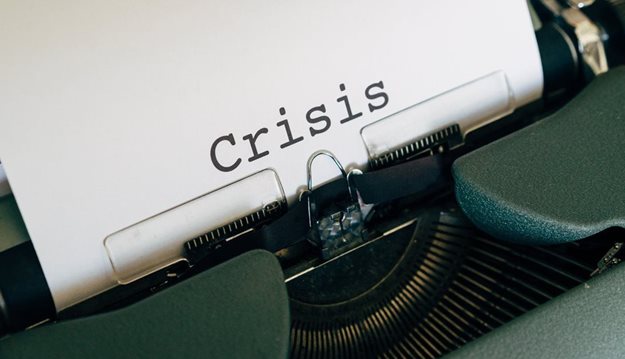
Top stories






More news






ESG & Sustainability
#Sona2026: President announces crisis committee to tackle SA's water challenges








Before the pandemic, brands were able to plan and prepare for potential crises based on known risks. As we've learned, things are no longer predictable. We do not yet know the nature of the challenges that await, but we can be certain their effects will be felt for years to come. The damage that hits a business today has the potential to affect not only profit, but also the way in which people and society interact with this business.
Consumers have started to adjust to “the new normal”, leaving them revaluating their choices, priorities and even their values. The Edelman Trust Barometer Special Report on Marketing Amidst a Crisis shows that globally consumers values have shifted towards protecting their families, spending time with loved ones, and making smart purchasing decisions.
As people re-imagine society and the communities in which they live and work, while wearily anticipating a second wave of infections, there is a change in the expectations that people have from the businesses that they engage with. Many businesses are cautiously optimistic about restarting their engines, a second wave may mean looking at the possibility of having to re-close their operations, the potential reintroduction of restrictions on movement and trade, as well as the impact this could have on employees and stakeholders.
The reality is, businesses need to be more agile to adapt to the new normal and start thinking about crisis in a new way. A large part of this will be ensuring that a proactive approach to risk and crisis management becomes an intrinsic part of their processes.
Here are three ways in which business can change their approach to crisis management going forward.
1. Change your mindset
Firstly, brands need to change their mindset around crisis so that they can employ new ways of always being prepared. An integrated response is needed to successfully navigate crisis, all areas of a business need to come together to communicate with the necessary stakeholders. This needs to be done with recognition of changing consumer values and with a tone that is appropriate for the crisis at hand. Looking at Covid-19, businesses were tasked to move beyond communications for crisis, beyond news cycles.
Brands needed to respond holistically to the Covid-19 crisis as it presented more than communications and perception issues, policies were no longer applicable, supply chains across various industries were disrupted and global priorities fundamentally shifted.
The fuel industry, for example, was particularly affected as demand dropped significantly, fuel prices plummeted, the industry’s franchise model was challenged on the compliance front, and employee safety needed to be a top priority. The pandemic overwhelmed many parts of businesses that may have been siloed in the past.
2. Relook future business strategies
Second to this, many brands will need to change their thinking around their business strategy with crisis thinking now making up a key component. Instead of thinking about the known risks to a business, businesses will need to start predicting future risks that may affect them even if not directly associated with their industry.
A way to manage this can include a shift from focusing on retrospective reporting to forward-looking landscape analysis. Your reputation seldom gets damaged in retrospect, it’s what is around the corner that counts. Edelman works closely with its clients to read the signs of issues on the horizon through robust social listening, research and analytics.
3. Take action
Lastly, taking action against crisis will be a key priority as businesses try and regain stability and move into recovery - action should be at the core of any communications activity.
Businesses will need to draw on their trusted relationships in order to ensure constant preparedness. The new challenges presented by modern crises cannot be fixed alone and there is a need and expectation from consumers that society collaborates in order to overcome a crisis of this magnitude.
As much as siloes within businesses need to be broken down to address issues effectively, so do siloes in industries and between the public and private sectors. When industries work together, they are better able to share information that helps businesses look around corners and come up with agile, quick solutions.
This was seen with the banking industry’s well aligned approach to granting payment holidays to individuals and small businesses, led by the regulator.
A new approach
It is essential that businesses change their approach to crisis communications, and that this is done through strategic integration across business functions and stakeholders. If brands work on building trust between themselves and employees, investors, regulators and consumers, they will be able to strengthen their reputation resilience.
The old building blocks of crisis preparedness are still important but these need to exist in a more holistic framework to ensure that the new order of crisis does not overwhelm businesses again.